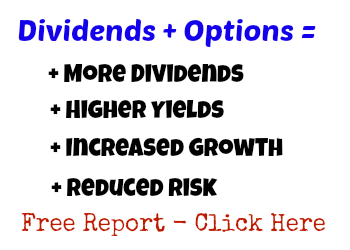What is a Dividend?
What is a dividend? It may seem a simple question, but there's a lot to consider when investing in a dividend paying stock.
Definition of a Dividend
The definition of a dividend is fairly straightforward. A dividend is simply a portion of the company's earnings paid out to its investors or shareholders. This is usually in the form of cash, but not always.
Historically, most investors have been dividend investors, in that the dividend payouts were a primary motivation of the investment in the first place. Indeed, many studies have shown that dividends account for a substantial amount of the historical returns in the stock market.
But something happened during the last great bull market (1982-1999). Dividend investing fell out of favor as company valuations (i.e. share prices) rose dramatically for most of two decades.
Suddenly dividend stock investing seemed outdated and boring. Dividend paying companies were disparaged as companies with little growth prospects who had nothing better to do with their cash but return it to investors.
To me, that makes no sense. If I invest in a company, I consider myself a junior partner (a very, very junior partner, I might add). If I become a partner or part owner in any enterprise, I do so with the expectation that I'm going to get income from the venture.
Why should stock investing being any different? What are dividends for, or rather what is investing for if not for earning returns from your investments? And to me, there's nothing better than returns in the form of direct cash.
Types of Dividends
The question "What is a dividend?" also requires an understanding of the different types. There are basically three:
- Cash Dividends - Typically, these are the norm. Most dividend paying companies distribute dividends to their common stock shareholders on a quarterly basis (a certain amount per share owned), although there are a few exceptions where the payout is either monthly or even annually.
- Special Dividends - Sometimes a company finds itself in a special situation where they've got a lot of cash on the books. Maybe it's the result of a recent sale of one of their lines of business. Regardless, instead of increasing the regular dividend to a long term unsustainable level, the company might opt instead to issue a one time special cash dividend. In 2004, for example, Microsoft had built up so much cash on the books, it announced plans for a one time special dividend of $3/share.
- Stock Dividends - If a company is strapped for cash, they might opt to issue dividends in the form of additional shares of stock over a regular cash dividend. In theory, this actually represents a net draw - the total number of shares would increase but, if the overall valuation remained the same, the share price would drop accordingly. Stock dividends are better viewed as a form of a stock split. You gain nothing from a stock dividend (perhaps the company gains greater liquidity in terms of a lowered share price), but you don't actually lose anything either.
What Is a Dividend for?
Finally, one other comment. Yes, solid, blue chip, dividend yielding stocks are good investments on their own, but many investors have also made the point that they're safer, too.Dividends don't lie. You can cook the books, you can fudge earnings, and you can even go Enron-crazy and book off balance sheet loans as revenue, but you can't distribute cash returns to your shareholders if you really don't have the cash.
So yes, blue chip companies consistently pay and grow their dividends, but you can view it in reverse, too. A company that consistently pays and grows its dividends may be the best indication of all of its merits as a potential quality investment.
Related Articles and Resources:
Create Your Own Dividend Reinvestment Program
Dividend Reinvestment Plans: A Leveraged Investing Alternative
High Dividend Stocks and Option Trading
Dividend Growth Investing: Why It's Superior To Growth Investing
Tweet
Follow @LeveragedInvest

>> The Complete Guide to Selling Puts (Best Put Selling Resource on the Web)
>> Constructing Multiple Lines of Defense Into Your Put Selling Trades (How to Safely Sell Options for High Yield Income in Any Market Environment)
Option Trading and Duration Series
Part 1 >> Best Durations When Buying or Selling Options (Updated Article)
Part 2 >> The Sweet Spot Expiration Date When Selling Options
Part 3 >> Pros and Cons of Selling Weekly Options
>> Comprehensive Guide to Selling Puts on Margin
Selling Puts and Earnings Series
>> Why Bear Markets Don't Matter When You Own a Great Business (Updated Article)
Part 1 >> Selling Puts Into Earnings
Part 2 >> How to Use Earnings to Manage and Repair a Short Put Trade
Part 3 >> Selling Puts and the Earnings Calendar (Weird but Important Tip)
Mastering the Psychology of the Stock Market Series
Part 1 >> Myth of Efficient Market Hypothesis
Part 2 >> Myth of Smart Money
Part 3 >> Psychology of Secular Bull and Bear Markets
Part 4 >> How to Know When a Stock Bubble is About to Pop



